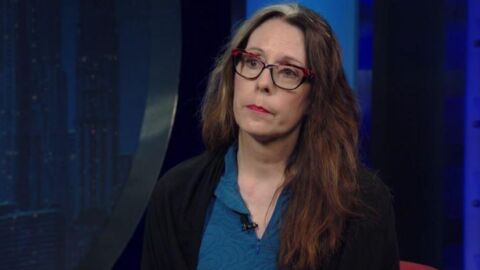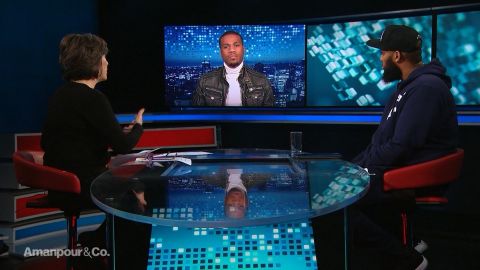Read Transcript EXPAND
CHRISTIANE AMANPOUR: Let me ask you about this really serious criminal activity that’s going on in our urban areas. We know that in Chicago the crime rate is very, very high. The murder rate is very, very high. We have these graphs which are showing massive, massive crime rates. Although in Chicago, it has been going down. In London, on the other hand, it’s going up. It’s spiking in London. Why do you think, Dr. Mahamed, this is happening here in London? We’re not used to this kind of level of killing sprees on the streets here.
MAHAMED HASHI, YOUTH WORKER: For me, I feel like there’s a historic neglect for our young people. And a lot of the time, they’ve gone for a lot of true animosity, and a lot of murders and a lot of, you know, serious injuries. And unfortunately, due to the austerity and the cuts, you have seen reduction in youth facilities, we’ve seen a reduction in engagement of our young people. And a lot of these people have gone through trauma, and have to cope with it by themselves. And it’s so unfortunate that they’ve come up with their own coping mechanisms, which makes them really angry and really aggressive and really difficult to communicate with.
AMANPOUR: So, those coping mechanisms include resorting to knives and things?
HASHI: It includes being frightened and being in fear constantly. And for me, what happens then is without guidance, you look for ways of making yourself feel more empowered. And I talk from a place of experience. So, I myself was a victim of a stabbing issue and it took five years for me to be diagnosed with posttraumatic stress, which meant I was hyper aggressive, hyper vigilant, always feeling anxious and I didn’t know how to address that. And that was me as an educated person with good support and I work as an adult. And I look at our kids with nothing to support them, and for me, that is really tragic.
AMANPOUR: So, Hashi, you talked about having been shot, you talked about having been stabbed, you were trying to break up fights and the others. Mikey, you also had experiences that landed you in jail, right?
MIKEY DAVIS, PROGRAM SPECIALIST, CURE VIOLENCE: Yes, I did.
AMANPOUR: What happened? And just give us an idea about what jail does, what it did to you, but what it does to others. Because again, you know, we’ve — we see our prisons, certainly prisons in the United States, jam- packed with youth offenders.
DAVIS: Yes. I think it’s different for everybody. For me, it was definitely a learning experience. I was able to find my actual potential while I was incarcerated. You know, I mean, it was my first time ever reading a full book, you know. So, I think it works differently for different people. But it definitely has an effect, I wouldn’t wish jail on anybody, you know, but for me. I mean, it just — that’s what it took for me to actually, you know, wake up and get myself together and kind of understand that, you know, I am more than I believed I was and I’m not just that product of my environment that’s meant to be stuck in my environment. You know, it helped me — you know, I mean, meeting new people. It helped me understand individuals that came from different communities.
About This Episode EXPAND
Two youth workers, Cure Violence’s Mikey Davis and the Brixton Soup Kitchen’s Mahamed Hashi, discuss street violence as a public health issue; author Laurie Halse Anderson on “Shout,” her memoir, and on why sexual abuse can shame victims into silence; and neuroscientist Matthew Walker on why sleeping more could improve our health and change our lives.
LEARN MORE


